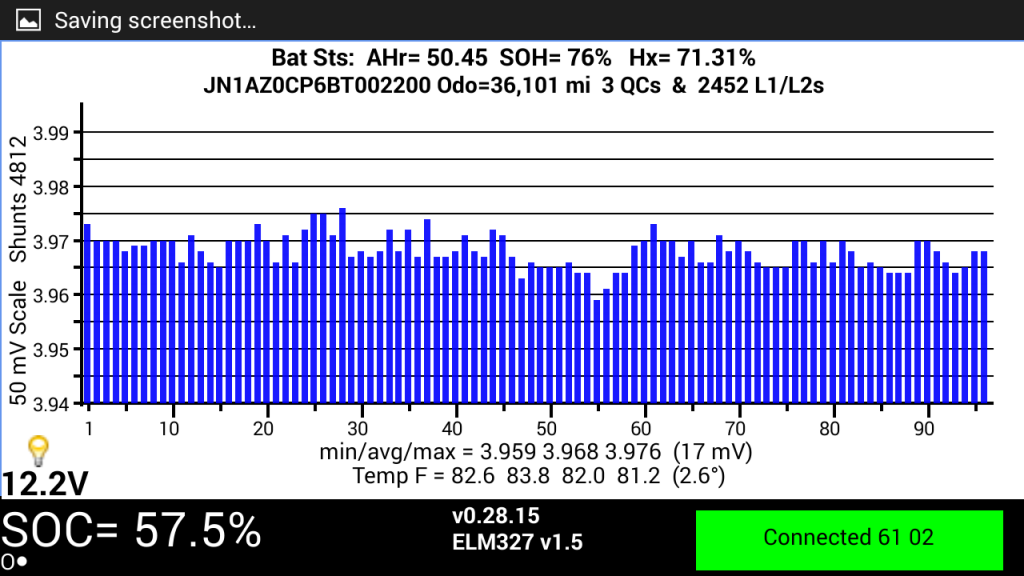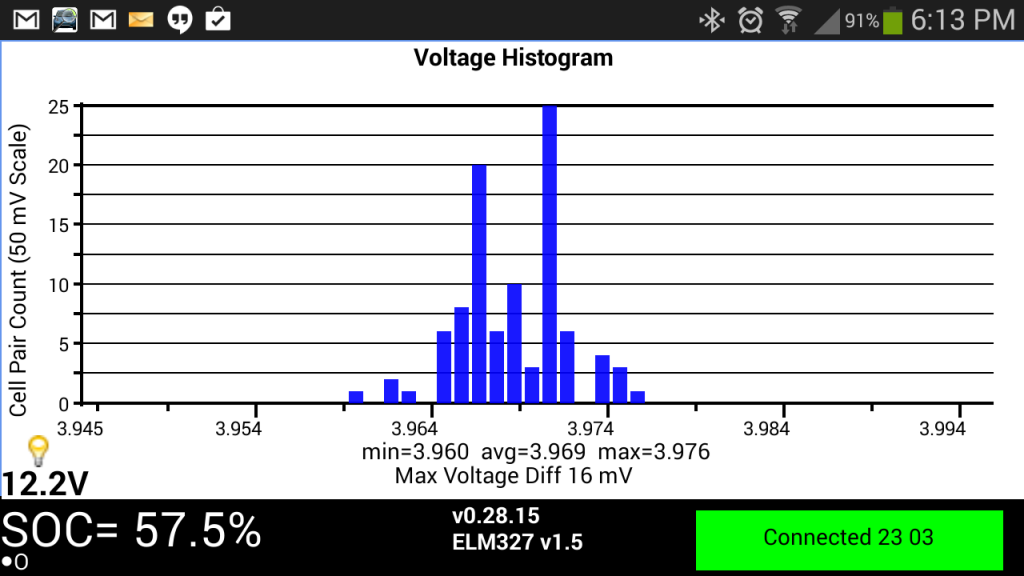agunther said:
I have the benefit of using the carpool lane now for the higher depreciation of it. I am somewhat ok with that trade-off and I learned a lot what to look for in my next EV purchase.
Yes, I think we all have. Unfortunately, it may be difficult to know about battery life at the time of purchase. Hopefully the industry will grow up to the point where it can provide accurate information on this topic. The guidance Nissan gave on the original LEAF batteries was simply wrong.
agunther said:
Strangely, after all these years I haven't noticed much degradation in the battery of my macbook. Seems like Nissan needs to learn a few things.
I'm noticing quite a bit of degradation on the iPad I'm using to type this message. It was purchased about the same time as the LEAF. There are a few differences I can think of that would affect the degradation of our batteries and our perceptions about that degradation:
- The LEAF directly reports the degradation of the battery while the iPad and MacBook do not.
- If the battery in the LEAF gets fully discharge, it takes much longer to recharge and it cannot be used while it is charging. In both cases, you just need to plug in when the battery gets discharged but the iBook is more likely to be near a plug when that happens. If it is not, it can be moved to a plug more easily.
- If the battery in your MacBook or my iPad runs out of charge, it is not as big of a deal (usually) as the battery in the LEAF running out of charge. As a result, we tend to be more tuned-in to changes in capacity in our LEAFs.
- The LEAF battery likely receives more cycling than the battery in the MacBook. However, the MacBook likely spends much more time at a high state-of-charge than the LEAF. My iPad, OTOH, likely receives slightly more cycling than the LEAF, although I would say they are quite similar in this regard.
- The charge rate on the LEAF is only about C/7 while the charge rate on the MacBook is about C/2. Quick-charge rate on the LEAF is about 2C.
- The discharge rate on the LEAF varies wildly as you drive between about 4C and charging at C. The discharge rate on the MacBook and iPad are fairly steady when on at between C/15 and C/5. This difference tends to make changes in battery resistance less of a factor for the MacBook and iPad, but slightly more noticeable in a LEAF driving on the highway.
- The battery chemistry for the LEAF was chosen because it provides very good safety and capacity. The battery chemistry for the MacBook and iPad also provides good capacity, but it retains capacity better in a hot environment than the LEAF chemistry.
- The replacement batteries for the LEAF now have an improved chemistry which will not degrade as quickly as the originals. How much better are they? We will have to wait for that answer.
The good news is that future versions of our LEAFs, our MacBooks and our iPads will (usually) have cheaper, better batteries in them.


